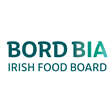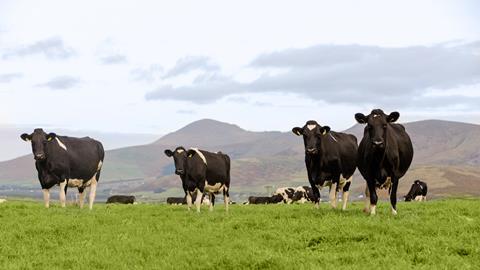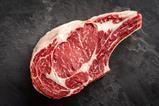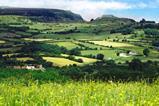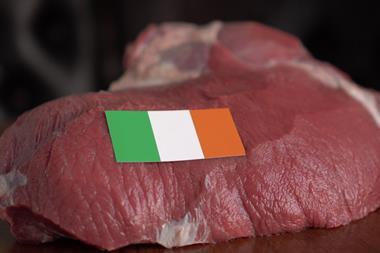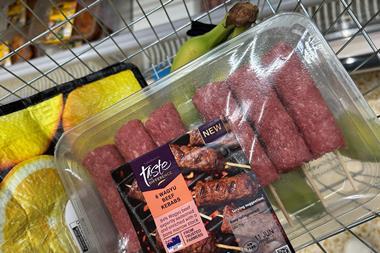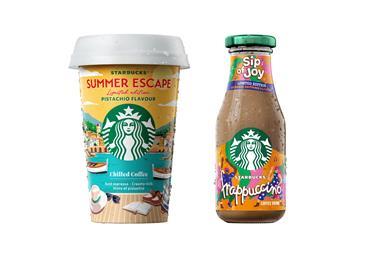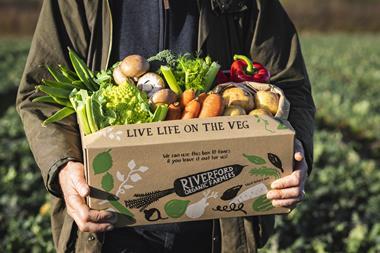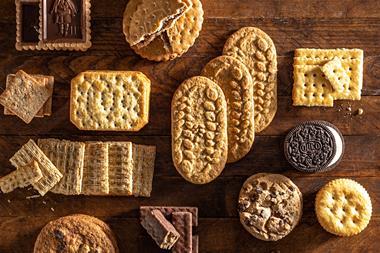Innovation and tradition are, for most intent and purposes, opposing forces. But, in Ireland, a country with a rich and proud farming heritage, innovation and tradition have come together in harmony with the creation of the first-ever grass-fed accreditation for dairy – Bord Bia’s (The Irish Food Board) Grass-Fed Standard.
This new accreditation gives a veritable proof that the milk used in products and ingredients has come from grass-fed cows, not only guaranteeing a richer, creamier milk with a longer finish, but crucially helping differentiate Irish products on shelf, and meeting wider consumer demand for greater provenance and transparency.
To meet the rigorous requirements of the standard, individual Irish dairy herds need to enjoy a diet that is a minimum of 90% grass. When milk is pooled from various different farms for processing, this figure rises to a grass-fed average of 95%. It’s a robust system that ensures that Bord Bia can accurately quantify the amount of time Irish dairy cows have spent on pasture, which currently equates to 240 full days a year.
The pioneering standard allows producers using Irish dairy to differentiate their product on shelf and tap into customers’ desire to purchase naturally tasty dairy from sustainable, grass-fed farming systems – a movement driven by the wider consumer trend for granular details on the provenance of all food and drink purchases.
The growing demand for grass-fed products is evidenced in research from Ernst and Young stating that 50% of consumers globally now express a preference for grass-fed dairy [1]. The study also reveals that almost two thirds (64%) of consumers are willing to pay more for grass-fed products, driven by its strong association with terms such as ‘natural’, ‘healthy’ and ‘premium’ [2].
Associations with health can be attributed to a growing body of research that highlights grass-fed dairy’s advanced nutritional properties. Are dairy products from grass-fed cows really better for us? is the question addressed by Dr. Niamh Hunt, PhD of Kerry Taste & Nutrition, who calls out three of the study’s major findings.
She reports that grass-fed cows produce increased levels of conjugated linoleic acid (CLA), heart-healthy omega-3 and vitamin B2, B7 and E levels [3], and that the benefits of grass-fed dairy go beyond enhanced protein quality and quantity, extending into other areas of human health and nutrition.
There has clearly been an acceleration in consumer demand for premium grass-fed dairy and the launch of Bord Bia’s Grass-Fed Standard puts Ireland in the ideal position to meet it, with the world’s first scientifically proven standard.
Padraig Brennan, Bord Bia’s Meat, Food and Beverage director
“Dairy from Ireland has always been rooted in a grass-based production system. The lush green fields, fresh clean air and plentiful rain has created the perfect environment for dairy farming which converts grass into nutrient-rich, premium quality dairy products and ingredients. These conditions, combined with the knowledge, expertise and passion of the farming community, which boasts decades of experience passed down through generations, creates the perfect recipe for an incredibly high-quality product.
“This new comprehensive Grass-Fed Standard, is a world first, giving irrefutable scientific evidence of the Ireland’s grass-fed dairy farming. No other nation can substantiate claims in a robust as fashion, giving Irish products clear differentiation when meeting the growing consumer demand for grass-fed products with clarity over provenance.”
The Bord Bia Grass-Fed Standard model has been developed by Teagasc, the Irish Agriculture and Food Development Authority - at its Animal and Grassland Research and Innovation Centre, the leading research centre on milk production in Ireland - and will use data collected during the government-approved Sustainable Dairy Assurance Scheme on-farm audits to determine the grass-fed status of each participating herd.
The Bord Bia national Sustainable Dairy Assurance Scheme is a voluntary scheme operating under Origin Green, Ireland’s national food sustainability programme. Irish farmers’ participation highlights their commitment to maximising the efficiencies of grass-based production and enables Bord Bia to collect the data needed for this evidence-based standard.
Against a wider backdrop of consumer concerns around animal welfare, quality and sustainability, Ireland has forged itself a world-leading position in these areas with its rigorous sustainability programme, Origin Green, which launched in 2012 and supports farmers and producers from across the nation on driving sustainable practices through a structured and measured approach.
The Origin Green programme brings together innovation and tradition to carve out a more sustainable future for the Irish food and drink industry. Just as with grass-fed beef, the grass-fed diet of dairy cattle has a fundamental impact on the taste profile of the milk and subsequent products that are made from it, such as yoghurts, cheese and butter.
Over the past two years, Bord Bia’s The Thinking House insight team, has been tracking consumer sentiment through a Brexit Pulse survey, the latest iteration of which also looked at the impact of other factors, such as the ongoing pandemic. The latest results show much cause for optimism for the consumer confidence and perceptions of Irish dairy and highlight the clear trust and demand among UK consumers.
The research highlights that Ireland remains the top choice for UK shoppers when choosing food from non-UK markets, with 85% open to choosing Irish food and drink [4]. However, when looking towards a post-Brexit world, 41% of respondents listed concern about the availability of Irish food and drink and over half (51%) were concerned about the quality of future food and drink on that will be on offer [5].
When asked what Irish products UK shoppers would miss most, if there were to be a reduction in the availability or spike in the cost of goods, Irish dairy features prominently, with cheddar cheese (65%) and butter (61%) being the Irish items UK shoppers would miss the most.
Evidently, UK consumers’ trust in the quality of Irish products and appetite to consume them remains strong. A reputation and association that has been built on centuries of trade and one which will continue to grow and develop over the years ahead. As the 31 December approaches, it’s clear that the combination of innovation and tradition, explicitly demonstrated through the development of this new grass-fed accreditation scheme for dairy, highlights positive signs for the continuation of this deep-rooted relationship for many years to come.
SOURCES
[1] 50% of consumers globally, source: Bord Bia/Ernst and Young Research 2018
[2] 64% of consumers globally, source: Bord Bia/Ernst and Young Research 2018
[3] Bord Bia. 2020. Review of a study conducted by scientists at Teagasc Moorepark Research Centre, Cork and the APC Microbiome Institute, University College Cork1. Dr. Hunt. Accessed November 2020. https://bit.ly/37gkwFs
[4] Bord Bia. 2020. Bord Bia’s Brexit Pulse Survey. Accessed November 2020
[5] Bord Bia. 2020. Bord Bia’s Brexit Pulse Survey. Accessed November 2020
